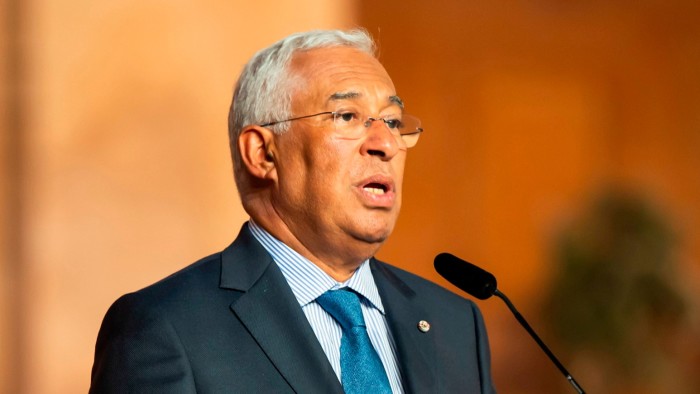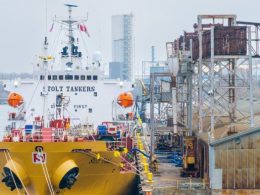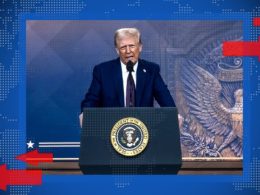This article is an on-site version of our FirstFT newsletter. Subscribers can sign up to our Asia, Europe/Africa or Americas edition to get the newsletter delivered every weekday morning. Explore all of our newsletters here
Today’s agenda: Uranium supply crunch; JPMorgan’s “huge mistake”; who will succeed Xi Jinping?; airlines braced for crowded skies; and the human resources reckoning
Good morning. Today marks the beginning of a potentially decisive week for security, as Europe’s most powerful leaders gather in Paris for an emergency meeting on Ukraine and the future of the continent’s defence. Roula Khalaf and Henry Foy talked to António Costa at the Munich Security Conference this weekend.
Costa’s warning: The EU must be involved in negotiations with Russia over the end of the Ukraine war in order to map out Europe’s future security architecture, the bloc’s president has said. “It is not only about Ukraine. The negotiations on the new security architecture need to take into account that Russia is a global threat, not only a threat to Ukraine.” Read the rest of the interview.
Looking ahead: The US-Russia talks on Ukraine will formally begin in Saudi Arabia this week when Donald Trump’s top diplomat Marco Rubio sits down with Russia’s Sergei Lavrov. Speaking to reporters on Sunday, the US president said Ukrainian President Volodymyr Zelenskyy also wanted the war to end, and would be “involved” in the talks.
“This is the beginning of the beginning. Things are definitely moving,” Alexander Stubb, Finland’s president, told the FT. Referring to the date of Russia’s full-scale invasion, he added: “I think the world order started to shift on the 24th of February 2022, and we are now seeing the direction in which it might be going.”
Read more on Europe’s response to the fast-moving negotiations taking place without them.
-
UK-US relations: Sir Keir Starmer is seeking to act as “a bridge” between Washington and Europe against a backdrop of deepening transatlantic tensions.
-
Ukraine: President Volodymyr Zelenskyy has rejected a US bid to take ownership of around 50 per cent of the rights to his country’s rare earth minerals and is trying to negotiate a better deal.
-
Germany in disarray: The US vice-president’s sharp words at the Munich Security Conference sent shockwaves through the transatlantic alliance.
Here’s what else we’re keeping tabs on today:
-
UK economic data: Rightmove issues its latest house price index.
-
Israel-Hamas conflict: Today marks the 500th day since Hamas launched an attack on Israel on October 7 2023, amid concerns over Washington’s commitment to a fragile ceasefire deal.
-
Results: Tyremaker Bridgestone, property developer Lendlease and tech-based savings platform MONY Group report.
Five more top stories
1. US and European energy companies are at growing risk from a uranium supply crunch as demand surges for nuclear power to fuel everything from household electricity to data centres, industry figures have warned. The threat comes as Kazakhstan, the world’s biggest producer of the metal, sells more to Russia and China. Read the full report.
2. Exclusive: The head of food retailer Iceland has given the Labour government a “six out of 10” despite having introduced Sir Keir Starmer at the launch of his election manifesto last summer. Ministers should do more on planning reform and fixing Britain’s productivity problems, Richard Walker told the Financial Times.
3. JPMorgan Chase’s alleged close relationship with prosecutors will be a key focus in a trial this week over criminal charges that entrepreneur Charlie Javice fraudulently induced the US bank to buy her student loan start-up. Joshua Franklin and Sujeet Indap have more on the case.
4. Germany’s far-right candidate Alice Weidel emerged as the prime target in a heated four-way televised debate ahead of general elections next Sunday. The co-leader of Alternative for Germany praised Donald Trump as the “right man” to end the war in Ukraine and urged her country to remain a “neutral mediator”.
5. Gold has become the best performing “Trump trade” in recent weeks, outperforming other major asset classes since the US president’s inauguration, as fears of a trade war and a potential hit to global growth fuel demand for the haven metal. “When trade contracts, gold takes off,” said one analyst. Read the full story.
The Big Read
After more than a decade of political purges and centralisation of power, China’s most powerful leader since Mao faces no direct challenge to his authority. As he enters the midpoint of his third five-year term in power, China’s unspoken question is becoming more urgent: who will succeed Xi Jinping?
We’re also reading . . .
Graphic of the day
The world’s skies are becoming crowded, as rockets, drones, and “flying taxis” in the near future begin to use airspace, causing headaches for airlines. Aviation experts believe the way airspace is managed will need to change.

Take a break from the news . . .
As economic turbulence slows hiring and companies rethink diversity and remote work, HR has become the “punching bag” of the workplace. Few will sympathise with the profession, but Emma Jacobs thinks people managers are more essential than ever.

Thank you for reading and remember you can add FirstFT to myFT. You can also elect to receive a FirstFT push notification every morning on the app. Send your recommendations and feedback to firstft@ft.com
Source link









